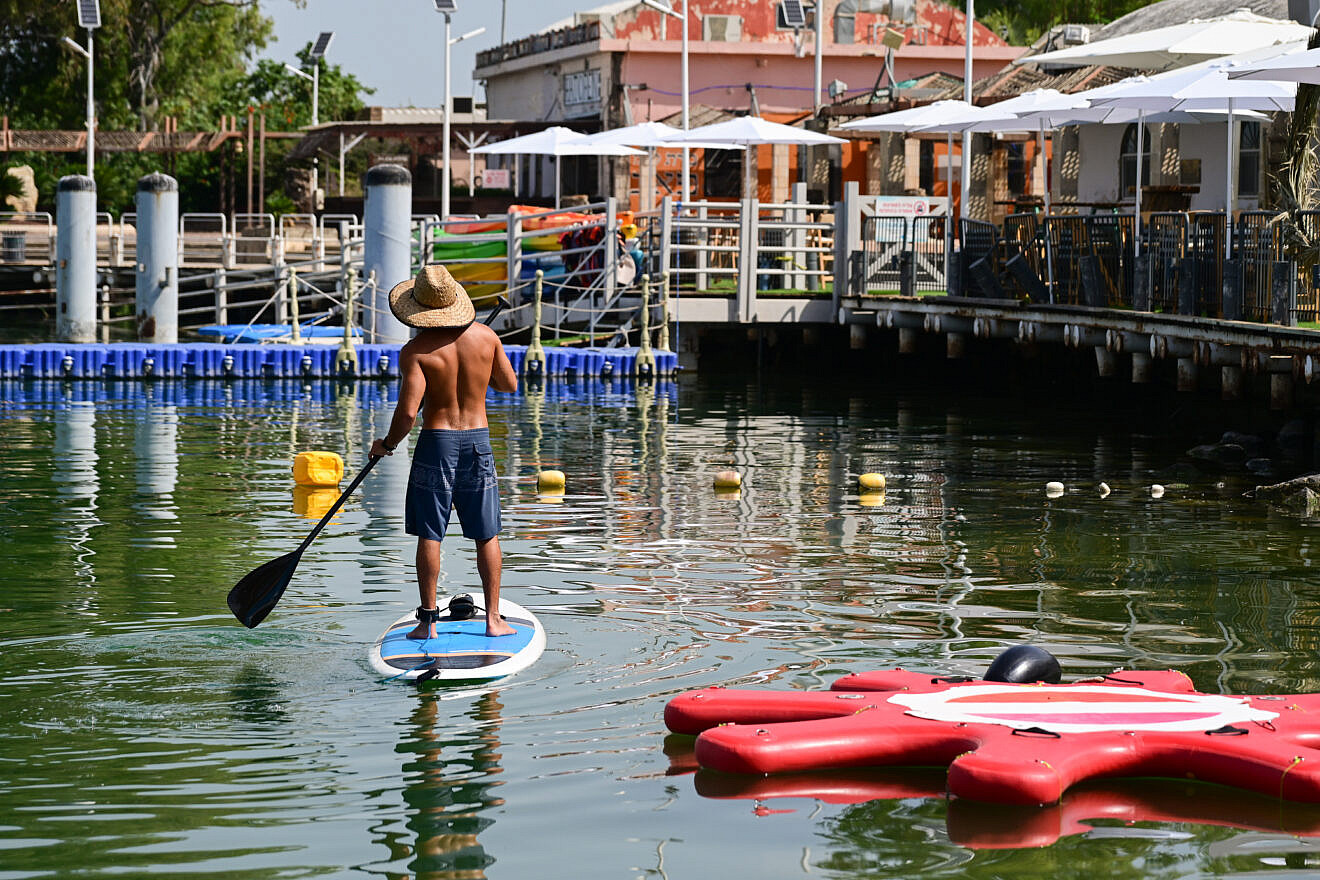

JNS
“There is a need for more data regarding the cardiovascular clinical aspects of this water activity and the risks it entails,” the scholars wrote.
Stand up paddle boarding has been variously described in Jewish and Israeli sources as “a good metaphor for life” and as an activity for which the Jewish state, and particularly its Dead Sea, is a “paradise.”
But according to seven Israeli doctors and researchers from the Hillel Yaffe Medical Center and the Technion-Israel Institute of Technology, who published their findings this month in the Israel Medical Association Journal, stand up paddling can lead to life-threatening health problems even in people who are in good shape.
“The possible health advantages boasted by SUP include core muscle training and cardiovascular benefits,” the scholars, led by Dr. Maguli Barel, write.
“SUP has been promoted as a sport that both promotes fitness and strength and is enjoyable,” but it “may be associated with sudden changes in blood pressure and increase in shear stress that may play an important role in atherothrombosis,” they add, of blood clots that can lead to heart attacks and strokes.
The scholars’ data suggests that stand up paddling “may also trigger life-threatening coronary events, even in fit individuals,” they add.
The researchers note that the sport, which is “a mix between canoeing and surfing,” involves someone standing “upright on a surfboard” and propelling themselves via a single paddle. “It is an emerging recreational activity that is attracting public attention and gaining popularity because it promotes fitness, strength and improved balance,” they note.
The scholars studied five men and one woman—whose ages ranged from 41 to 69 and who were all fit—who experienced sudden cardiac arrest or a heart attack while paddling. “All patients were discharged alive,” they wrote.
“A review of the literature showed a paucity of scientific evidence to substantiate the proposed health benefits of SUP surfing,” they wrote. “Our cluster of acute cardiac events occurring during this activity calls for heightened public awareness to better understand the physical demand required to practice SUP.”
“There is a need for more data regarding the cardiovascular clinical aspects of this water activity and the risks it entails,” they added.
They note that their medical center is located near “an active and popular sea sport center with many different attractions.”
One of the six subjects, a 41-year-old man, was “otherwise healthy” but found collapsed, lying on his surfboard a few yards from shore “with his head in the water,” they write. Bystanders, who performed CPR immediately, managed after half an hour to help his blood circulation resume.
 A man stand up paddle boards in the Kinneret, in the northern Israeli town of Tiberias, May 23, 2024. Credit: Michael Giladi/Flash90.
A man stand up paddle boards in the Kinneret, in the northern Israeli town of Tiberias, May 23, 2024. Credit: Michael Giladi/Flash90.
“He was evacuated to our center in critical condition and was sedated and intubated,” they write.
Another otherwise healthy man, 47, collapsed on a beach a few minutes after stand up paddling, and a third man, 69, complained of chest pain while paddling with his son and collapsed when they returned to shore. “He was pulled from the water by his son,” the researchers wrote.
The other three patients were a 46-year-old woman who developed chest pain while paddling a few hundred yards and made it back to shore, a 67-year-old man who raced a friend some 1,000 yards to shore with “intense paddling and surfing” before experienced chest pain and shortness of breath and a 57-year-old man who had a heart attack after feeling chest pain and shortness of breath while paddling a few hundred yards from the shore.
“Most incidents occur during summer months, which are characterized by elevated temperatures and usually high humidity. These conditions are known to significantly impact heart rate, and exercise intensity potentially exacerbates cardiovascular strain,” the researchers wrote. “Two of our patients had a previous heart condition but were asymptomatic and were able to perform vigorous exercise.”
“Sudden cardiac arrest in recreational athletes, while rare, can be a significant concern,” they added. “This condition refers to an unexpected death due to cardiac causes within a short time frame, often during or immediately after physical activity.”